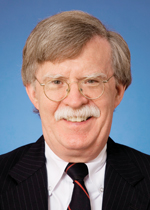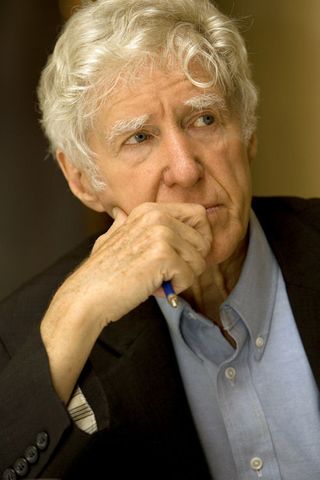Earlier this year, the Brookings Institution's Peter Singer declared Washington's industry the "Idea Industry," largely thanks to number and strength of Washington's think tanks.
Singer wrote:
Travel down Massachusetts Avenue in Northwest DC and you’ll find yourself in the heart of an industry that was, when it began, unique to the nation’s capital. The imposing facades of the Brookings Institution, the Carnegie Endowment for International Peace, and the Johns Hopkins School of Advanced International Studies bear little resemblance to the old steel mills of Pittsburgh, but they are factories all the same—producing an endless stream of books, policy papers, reports, analyses, and commentary on everything from health care to taxes to defense.
In many ways, I thought (and still think) Singer's right. The question now is: How are all those endless streams of books, policy papers, reports, analyses and commentary measuring up?
Last week, I posted about the only book by a think tanker to get a mention in the Top 20 books recommended by Foreign Policy's Top 100 Global Thinkers. It was Charles Murray's Human Accomplishment.
In general, think tankers (who are ostensibly paid to think) did not fare well on the list of Foreign Policy's Top 100 Global Thinkers. It took until #50 before Ashraf Ghani and Clare Lockhart made the list for their work on Afghanistan at the Institute for State Effectiveness. And while the Institute has done good work (and their book, Fixing Failed States, is quite good), it's more of a two-person advocacy organization that also does smart policy analysis than a full-blown think tank.
That makes AEI's John Bolton the first appearance on the list at #56 "for not giving up." 
For a while, John Bolton was the droopy-mustachioed personification of the Bush administration's foreign policy at its most bellicose and uncompromising. Famously contemptuous of the United Nations to which he was briefly George W. Bush's emissary, Bolton mocked the very concept of negotiation ("I don't do carrots").
His brand of smash-mouth diplomacy has fallen precipitously out of favor in the Obama era, but the man himself is unbowed: Over the past year he has emerged as one of the most vocal veterans of a Bush foreign-policy team that has mostly retreated from politics. Bolton has blasted the Obama administration's nuclear treaty with Russia for "seriously weakening both our strategic offensive and defensive capacity," urged Israel to bomb Iran's Bushehr reactor, and accused Obama of pursuing an "anti-Israel" policy in the Middle East.
Also from AEI was Ayaan Hirsi Ali at #61 "for her staunch defense of Western values."
While not a think tanker at the moment, it would be wrong to overlook Michele Flournoy who, with Anne-Marie Slaughter, picked up #74 for their part in "setting the tone of how the United States engages with the world." Flournoy, the Pentagon's Undersecretary for Policy, was co-founder of the Center for a New American Security, "who articulated a vision for a new Democratic realism in foreign policy that both candidates Hillary Clinton and Obama embraced in the 2008 election," according to Foreign Policy editors.
Lester Brown, President of the Earth Policy Institute, came in at #78 "for exlaining the connection between planet and plate." 
Lester Brown was puzzling over the links between ecosystem, economy, and esophagus long before Michael Pollan ever contemplated the omnivore's dilemma. Brown's recent work -- most notably his much-updated 2003 book Plan B -- carries a grim message: that a flawed economic system and political paralysis have conspired to push the environment to the brink of catastrophe, one that will take with it the world food system and, ultimately, civilization. Brown had been warning of rising food prices and shortages years before his predictions came true in 2007 and 2008, and his arguments received another bleak bit of confirmation this year when the worst heat wave in recorded Russian history sparked wildfires that wiped out an estimated 38 percent of the country's grain harvest. "I sort of assumed that in our modern world, food could not be the weak link," Brown told FP shortly after the fires. "I now think not only that it could be, but that it probably will be the weak link."
And the final think tanker on the list is Harvard economist and Hoover Institution senior fellow Niall Ferguson. Ferguson is #80 on the Foreign Policy list "for showing that economic crisis are about a lot more than the economy."
I'm curious to know what think tankers think about the fact that only four of the Top 100 came from think tanks if, indeed, ideas are Washington's industry and think tanks are the manufacturers.










Well, was Foreign Policy really interested in "global thinkers"?
It seems they were honoring more leaders, who are rich or powerful and "do" a lot.
"Warren Buffett and Bill Gates for stepping up as the world's states falter."
Great that they donate so much in such a smart way and I hope they can convince other billionaires to join their efforts, but is that "thinking"?
"Zhou Xiaochuan for holding the world's economic fate in his hands."
Smart and powerful policy maker, who is advancing China's goals, but how is he contributing to the "global marketplace of ideas", which is what the "thinkers" in this list are supposed to be doing.
Posted by: Joerg Wolf | December 08, 2010 at 04:19 PM